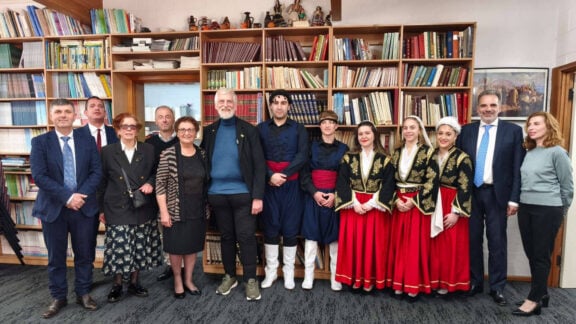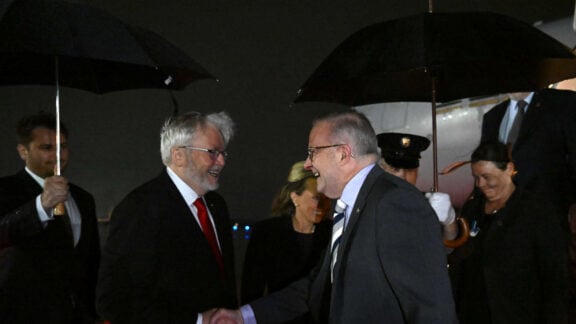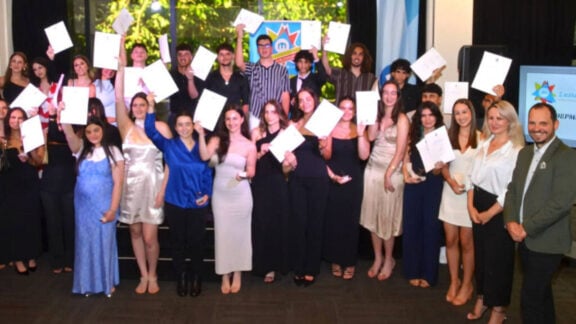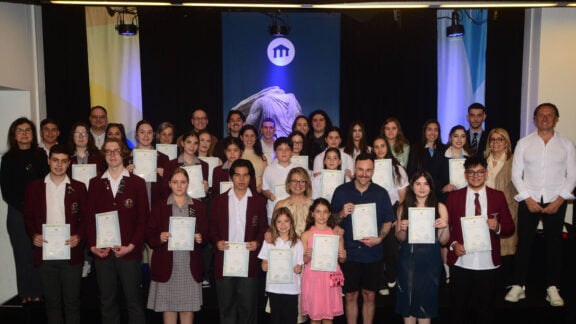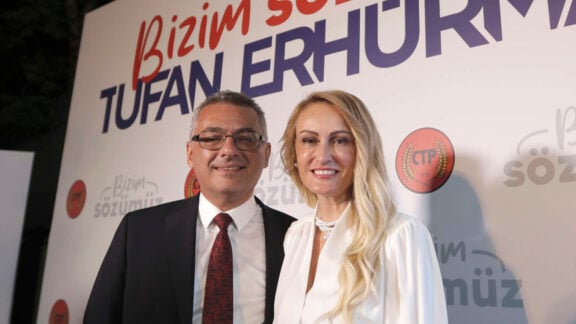Over the past 10 years, whenever rumours about changes in the one and only Greek Studies program at La Trobe University surface within the Greek community, alarm bells go off and the prevailing assumption made is that the upcoming changes can only be for the worse.
The same happened a few weeks ago. The program coordinator, Dr Maria Herodotou, informed the university at the start of the year of her decision to retire by the end of 2017. That surely had to mobilise the relevant university authorities to seek her replacement, but up until this week there was no indication that the university was looking actively for someone to replace her.
This created a great deal of anxiety within the community who, through the years, had seen the program shrinking.
In 2011 the program received an existential blow with the abolition of one of two full-time academic staff positions. As a result, since then Dr Herodotou has been the only full-time permanent academic in the program, which has about 140 undergraduate and postgraduate students per year. The reasons for the abolition of the full-time position then, according to the university, were purely economic. The program could not sustain itself, in other words.
However, today, even if some realities, such as the limited number of students continue, the university, apart from some very small grants it receives from the Republic of Cyprus from time to time ‘sits’ on a bequest of $1.3 million; donated by Anastasios and Maria Vasilogiannakopoulos for “improvement of Greek studies”.
Meanwhile, the university is holding another precious resource under its roof: the Greek Archives, a community treasure that has been under-utilised for years now.
The departure of Dr Herodotou, who served the program since its inception at La Trobe, surely means the end of an era. As the program goes through a transformational stage, the time is ripe to ask some important questions about the new era – if there is going to be one at all.
What will happen after Dr Maria Herodotou departs? What happens with the Vasilogiannakopoulos family bequest? How does the university plan to use the Greek Archives for the studies program? Does the University have any plans for the future of the program?
We put the above questions to the recently appointed Head of the Department of Languages and Linguistics, Professor James Walker.
What are the department’s plans in terms of Dr Herodotou’s replacement as we have not yet seen the position advertised and the year is almost over?
Dr Herodotou’s position will be filled and we are hoping for the process to start within the next two weeks. We are just waiting for final approval from one last committee and I am hoping it is just a formality so I am waiting the final approval sometime this week. At the moment I am trying to get the go ahead and post the advertisement within the next couple of weeks. The idea is to get someone in place by the start of the next academic year. It will be a full-time permanent position.
Will the new person coming on board start creating some research bridges with the Greek Archives?
Yes in fact that was one of the arguments I made in terms of hiring a new person. The Greek archives are probably under-utilised as a resource and that it would be good to have someone who is able to maintain and organise the archives and make them available for others.
I see the archives as interrelated because the idea of this new person coming in is that it should be centred on the Greek language and the Greek community especially here in Australia and therefore their work should be related to the type of material that is housed in the archives.
A while ago the program received a substantial donation of $1.3 million. The money was donated on the basis that they will be invested for the betterment of the program. When are we going to see this investment? Don’t you think that now or in the very near future is as good a time as any?
Up until now the main use of the money was to fund the staffing of the Greek language subjects at the university. But certainly when we have the new staff member on board, a continuing staff member, we can decide how better to use those funds to promote Greek studies at La Trobe. Some of them may still be used for the funding of the staffing of the Greek language program but it can also be used for engaging in research projects, engaging with the archives, or it could be used to developing the archives in certain ways.
Have you made a submission to your superior for investing in this area proposing strategies that will promote the aforementioned vision?
We are currently waiting for the new person to come on board. All our efforts had been trying to make sure we get a full time continuous member to replace Dr Herodotou. And then when that person comes on board then we recruit them in terms of determining how we will move the Greek studies program forward.
You recently had a meeting with members of the Greek Community of Melbourne. Did anything result from the meeting?
We talked with them about developing Greek studies at Melbourne and what we can do within the community to meet their needs in terms of language teaching or fostering language teaching among Greek Australians. We are also trying to [encourage] more involvement from them in terms of students at the university who take Greek studies and we are interested in hearing back from them on what subjects we can offer to help to increase the enrolments. I think it was a very constructive meeting and I value the cooperation of the Greek community to work together for these goals.

